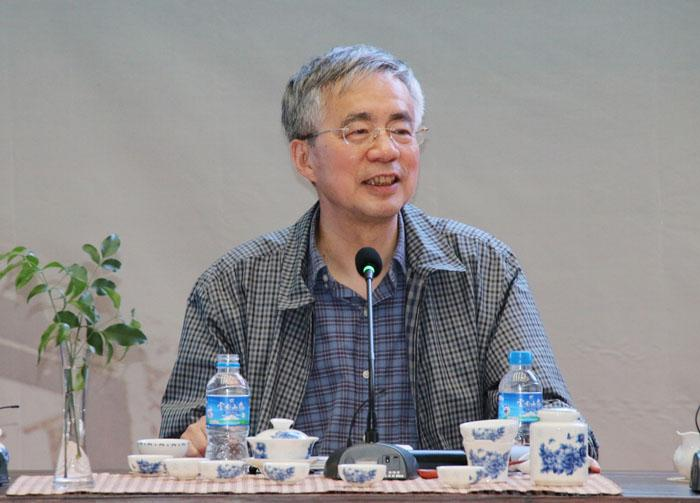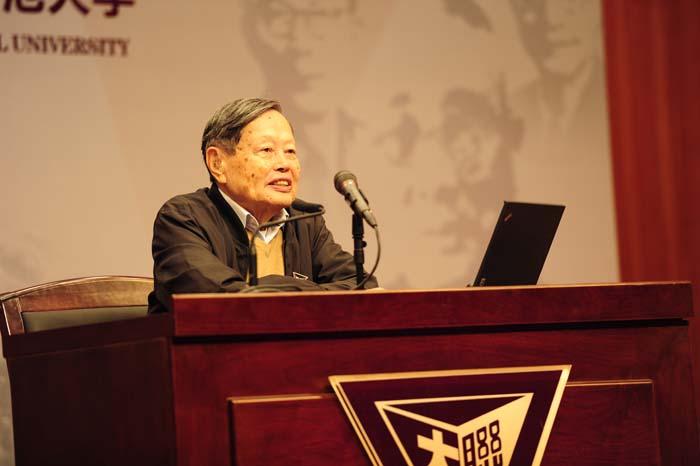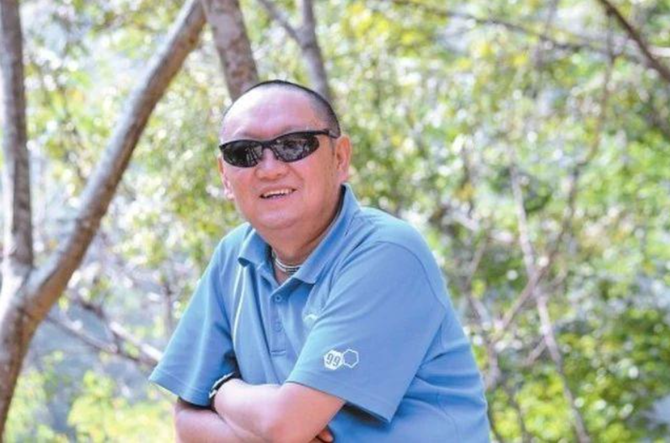Mama the Earth: COP15 song by great minds with Yunnan complex
Mama the Earth, the first theme song of the 15th meeting of the Conference of the Parties to the UN Convention on Biological Diversity (CBD COP15), was rolled out during the 30-day countdown activity in Kunming, Yunnan province on September 11.
Written by former Yunnan governor Xu Rongkai and composed by Wan Li, the song is coupled with English lyrics that are translated by Yang Zhenning, one of the two Nobel Prize winners for Physics in 1957, and his wife Weng Fan. Here is the lyric.
Mama the Earth
In the world there are many different tongues
With one word in common, it is oh Mama
Mama’s Mama, there’s one more Mama
It’s our common Mama, the Earth Mama
Don’t let Mama worry for us
Leave her clear sky and blue water
Don’t let Mama cry for us
Make her smile forever and ever Mama
Performed by children with the Kunming-based Shanlin Fairy-Tale Chorus, the 4:39 musical video (MV) apparently showcases various landscapes and living species in Yunnan and beyond. With a story-telling tone, the melodies flow on and on naturally.
The lyric poem has two stanzas. Linguistically, words in the first stanza are mostly registered in the children’s discourse, stressing commonality amid differences, while the second stanza serves as a repeated call for caring for Mother Nature.
In the eyes of Chinese, children’s talk is pure and truthful. With the referent focusing on Mama, which is loved and respected by each child and familiar to everyone, the lyric gives off a sense of warmth and universality.
Stylistically, the lyrics are simple in form but deep in meaning. The lyricist used the simplest and most familiar words to carry the theme of biodiversity protection, which will have a far-reaching effect on the Earth Mama’s future. Such lyrics are reminder of a Chinese saying, “Great truths are always simple.”
In actuality, the seemingly simple COP15 theme song is jointly created by master minds. The lyricist Xu Rongkai, the composer Wan Li and the translator Yang Zhenning of Mama the Earth, are all among the cultural elites in contemporary China. They know each other because of Yunnan and they share a similar complex, or sentiment towards the host province of COP15.

Former Yunnan governor Xu Rongkai shares his musical life at Yunnan Normal University in 2014. (YNNU photo)
Lyricist governor: “No part, My love!”
“At a farewell party in 2006, Xu Rongkai, former governor of Yunnan province, wrote an impromptu poem called “No part, My love” and chanted it, moving those present a lot. The poem, probably out of his love to Yunnan’s landscape and ethnic cultures, kicked off Xu’s side-line career as a lyricist,” said a 2012 report on The World of Aged People, which is a magazine based in north China’s Hebei province.
Born as a Chongqing native in 1942, Xu Rongkai served as Yunnan governor from January 2002 to November 2006. And he graduated from the Power Engineering department, Tsinghua University in 1966.
Though graduated as a science major, Xu had actually showed passion in literature in his teenage days. “Mr. Xu loved the serious pre-Tang poems, as well as the free verses by German poet Heine, Russian poets Pushkin and Mayakovsky, and others,” said the 2012 report.
Due to the ups and downs in the following decades, Xu’s literary talent was not well nourished in his posts as auto engineer or civil servant, but his passion in literature was reignited when saying goodbye to Yunnan.
In the ensuing years, Xu wrote a diversity of lyric poems for Yunnan province and the great events in China, and Xu was thus praised as “lyricist governor,” according to an article on the website of Yunnan Normal University.
The lyric poems dedicated to Yunnan include Long Street Banquet and Joyful Torch Festival depicting the diverse Yunnan ethnic customs, while Soft Moment, Drunk in Lijiang and Thoughts at Lugu Lake are all about the province’s ecological beauty.
Xu entitled one of his albums as “No part, My love”, and the cover picture of the album was drawn by his friend Luo Xu, a Yunnan artist. The picture shows a man sits leisurely on the canopy of a car with legs and wings, birds flying behind him and blue sky overhead.
“You have come out of the official car, entering a wider field and enjoying freer flights.” Luo explained to Xu, who likes this picture a lot.
Xu also wrote for the CCTV spring-festival gala, the 2008 Beijing Olympics, the 2010 Guangzhou Asian Games and the 110th anniversary of Tsinghua University earlier this year. And it was “Here We Meet Again” -- theme song of the Guangzhou games -- that started his artistic cooperation with Yang Zhengning, the translator.

Nobel laureate Yang Zhengning is invited to Yunnan Normal University for a lecture in 2013. (YNNU photo)
Nobel laureate: Wish COP15 great success
“Yunnan abounds in flora and fauna species, including the northbound roaming elephants that have gained fame recently,” said Yang Zhengning via a video link on September 11. “I wish the coming COP15 a great success and I believe the international guests will be impressed by Yunnan’s mild climate and more.”
Born in 1922 as a native of east China’s Anhui province, Yang’s first encounter with Yunnan occurred in 1938, when he attended the Kunhua high school (today’s Kunming No.1 Middle School) and was admitted by the National Southwest Associated University (commonly known as Lianda University).
Majoring physics, Yang was on the university’s bachelor-master program for six years in a row, and he takes Kunming as his second hometown. “It’s rather tough to live and learn in those days of national crisis and material scarcity, when Kunming city was under random air strikes by Japan,” said Yang during a 2017 tour in southwest Yunnan’s Tengchong.
Yang is 20 years senior than Xu, but the translator got to know the lyricist during one of his sentimental visits to Yunnan after returning to China from the US, when Xu was serving as governor of the province. Impressed by the witty and talkative governor during the receptions, Yang made friends with him.
Years later at a party, Xu said he was anxious about finding a good translator for his new lyric “Here We Meet Again” for the forthcoming Guangzhou games in 2010, and Yang replied that he was willing to help, according to the 2012 report on The World of Aged People.
“I’ve been in the US for decades, and I believe I can do a perfect job,” said Yang, adding his young wife Weng Fan could also help. 54 years junior than Yang, Weng majored English at Guangdong University of Foreign Studies in south China.
Actually, Yang himself showed linguistic talent when studying at the Kunming-based Lianda University in late 1930s. “The English majors and the physics majors had basic English classes together due to material scarcity those days, but Yang won higher markers than me,” recalled Xu Yuanchong, an alumnus of Yang in 2016 in Kunming. Xu was a top English student in the university, and he turned out to be a renowned Chinese-classics translator.
In October 2013, Yang was invited to Yunnan Normal University (derived from Lianda) for a lecture, and his lyricist friend Xu was among the audience of around 1,000, according to an article on the website of the Yunnan university.

Folk composer Wan Li (Online photo subject to deletion when required)
Folk composer: My music is rooted in Yunnan
Yunnan’s landscape variety has given rise to its diversity in ethnic folk music, and music is closely related to language, said Wan Li during a TV interview with the Beautiful Yunnan program.
“In my song Highland Woman, the melodious sounds are an imitation of local dialects in west Yunnan, be it the pitch, the rhythm or the duration,” revealed Wan. “So vivid are the folks’ utterances that they can be rendered into music via slight trimming.”
Lauding the beauty of the province, Wan added the reason why he could produce something distinct or original is that he has been well-nourished by Yunnan folk music of the diverse ethnic groups.
“Only by creating on the basis of tradition, can the folk music be kept moving forward,” said Wan in an article on Zhihu.com, a Chinese question-and-answer website. In the drama Zheng He and the Sea, Wan boldly fused the Yunnan ethnic folk music with jazzy, blues and raps, in a bid to make the drama better accepted.
The music drama was created in 2005 to mark the 600th anniversary for Yunnan voyager Zheng He’s westward odysseys. Zheng commanded expeditionary treasure voyages to Southeast Asia, the Indian subcontinent, Western Asia, and East Africa from 1405 to 1433.
Wan loves birds, and he composed for “Kunming: My Home for Good,” a theme song for the 2013 sea-gull culture festival. “Wan Li’s studio is adjacent to the Haigeng Dyke of Dainch Lake, and he has annual dates with the red-billed Siberian gulls that have come to Kunming for wintering for decades,” said the article on Zhihu.com.
Composer Wan was also born as an Anhui native in east China, but he is 32 years junior than Nobel prize-winner and translator Yang. However, they both spent their teenage days in Yunnan and thus share a similar affection to the province.
Influenced by his parents, Wan was fascinated with music since childhood, and starting at the age of 14, he was assigned to work as an educated youth in southwest Yunnan’s Simao (now Pu’er) for ten plus years, working and living with local farmers.
The locals were singing during farming activities, weddings, funerals and more, and Wan picked up the melodious tunes, humming often. And aided by his senior sister financially, Wan taught himself composing.
Now Wan is a first-rate Chinese composer, and he created the widely acclaimed pieces of Yunnan country music, including Mountain Kids, Highland Woman and others, said a Kunming Times report.
In total, Wan produced 300 plus lyric poems, composing for the music dramas of Ashima, Bronze Soul and Zheng He and the Sea. He joined hands with famed dancer Yang Liping in rolling out the Echoes of Shangri-La, or the Sound of Yunnan.
As a sister piece of Dynamic Yunnan, Echoes of Shangri-La is a grand series of music and dance based on traditional ethnic elements in northwest Yunnan.
Wan also created the Sani Fantasy, a piano solo that has been an optional piece in the international piano competitions. So far, he has won 50 plus national first prizes and 5 international awards.
In collecting ethnic musical elements, Wan would scale the Yunnan mountains and ridges to meet folk singers in remote areas, and some say this is an expression of his name Wan Li, which literally means 10,000 miles in Chinese.
By singing, drinking and staying up with the ethnic folks, Wan deepened his understanding to Yunnan country music, as well as the friendship with locals, according to Zhihu.com. In July 2018, he visited Dehong in west Yunnan, talking with a local choir of aunties.
Wan also enjoys a long friendship with Xu. Besides Mama the Earth, he also composed for Xu’s lyric poems of Thoughts at Lugu Lake, Long Street Banquet and Joyful Torch Festival. In 2014, they jointly shared their musical life with students and teachers at Yunnan Normal University.
Online Chinese sources; Trans-editing by Wang Shixue